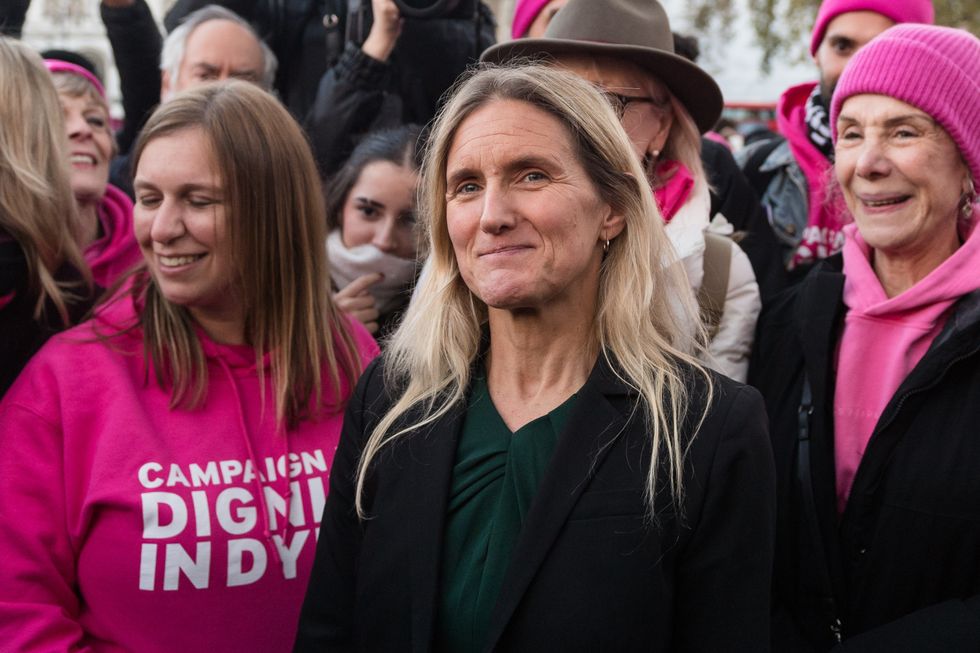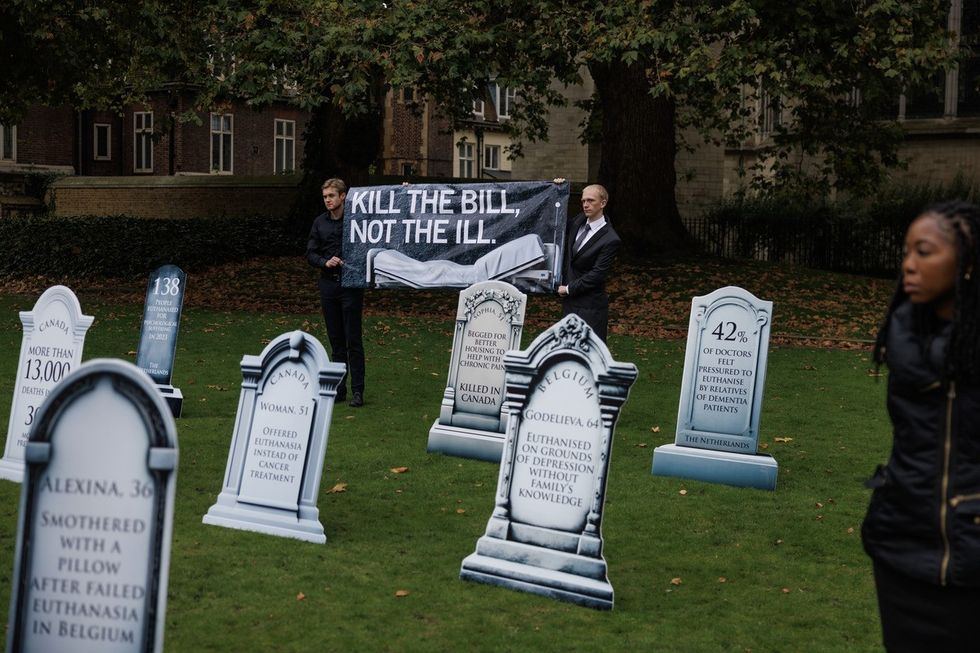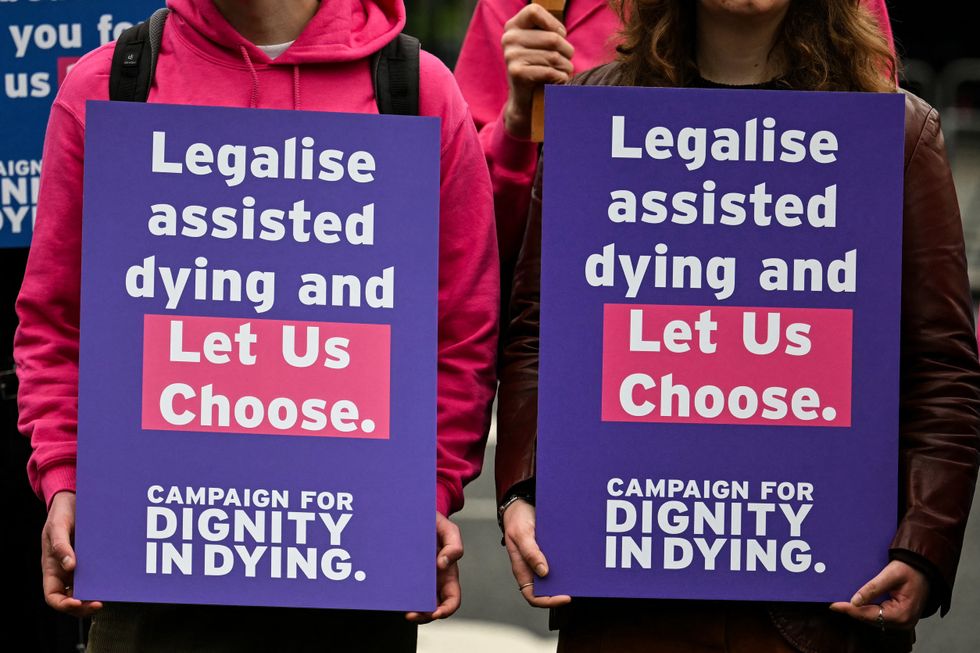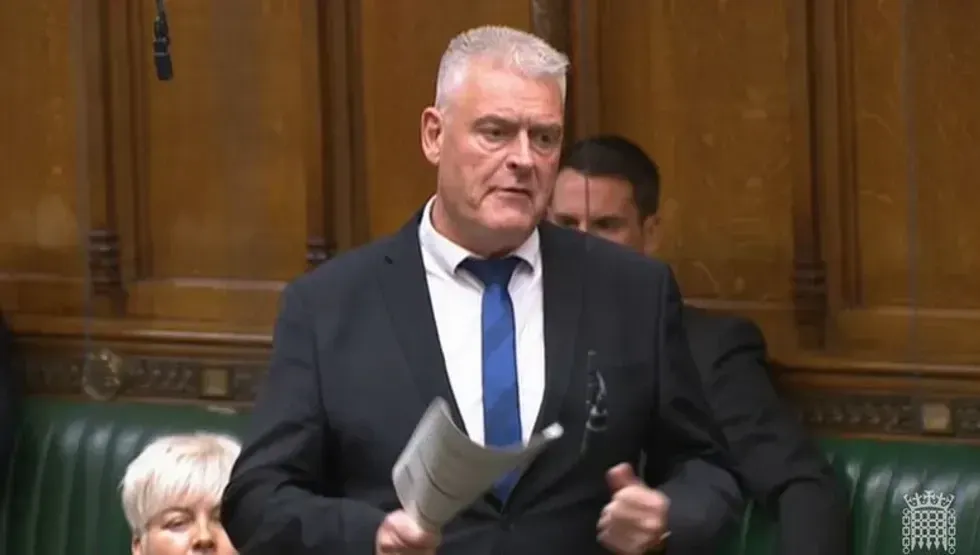When MPs voted for the Assisted Dying Bill last November, they were promised “the strictest safeguards in the world”.
Kim Leadbeater, the Labour MP bringing forward the bill, reassured wavering MPs with the pledge that two doctors and a High Court judge would oversee cases.
The legislation is designed to give terminally ill adults with less than six months to live the option to end their lives with medical assistance.
And they must have “the mental capacity” to make the decision.

Kim Leadbeater MP joins supporters of assisted dying outside Parliament as MPs in the House of Commons voted by a majority of 55 in favour of Terminally Ill Adults (End of Life) Bill
GETTY
But now it seems the use of a High Court judge is to be dropped.
It’s likely to be replaced with an “expert panel” consisting of a legal expert such as a retired judge, a psychiatrist and a social worker.
Leadbeater, who chose to try to legalise assisted dying through a Private Members Bill, says the change “will make my bill even more robust”, but others are concerned as what they see as a watering down of crucial safeguards.
This afternoon Baroness Hale, the former president of the UK’s Supreme Court, warned against removing judges from the process.
 Campaigners near Parliament Square against the proposed bill to legalise assisted dying,GETTY
Campaigners near Parliament Square against the proposed bill to legalise assisted dying,GETTYThe bill passed in November by just 55 votes. Since then, a committee has been appointed to hear evidence and work through suggested amendments, before the Commons final vote on April 25.
It’s worth saying that this contentious piece of legislation has come about because the Prime Minister made a promise to celebrity Esther Rantzen that he would make time for a debate on assisted dying in this Parliament.
That time came within just a few months of Labour gaining a huge majority, giving literally hundreds of brand new MPs a momentous responsibility.
If it becomes law it will be the most fundamental change to society in decades.

Campaigners in favour of the Assisted Dying Bill
GETTY
Rantzen has terminal lung cancer, and has said people shouldn’t have to go to Dignitas in Switzerland to end their lives. But fortunately for Rantzen, she is now on a wonder drug which has extended her life considerably.
This shows the difficulty of saying someone has “less than six months to live”, very often people can still be alive years later.
And that’s just one complication of many. Having sat listening to evidence from assorted “experts” recently, what struck me most was how ferociously complicated this is, and how there is no consensus.
The committee of MPs that Leadbeater has chosen is stacked in favour of the supporters but many of those who had the strongest objections have been left out.
That includes Tory MP and psychiatrist Ben Spencer, who worries about vulnerable people being subtly coerced into choosing to die.
He’s far from alone. Mother of the House Diane Abbott feels the most vulnerable are at risk, and has spoken out today, saying: “Safeguards on the Assisted Dying Bill are collapsing. Rushed, badly thought out legislation. Needs to be voted down.”
 Lee Anderson is a member of Reform Parliament TV
Lee Anderson is a member of Reform Parliament TVDanny Kruger, the most outspoken critic of the bill on the committee, was unimpressed with the “experts” called to give evidence.
Most were supportive and where people talked about the experience of assisted dying elsewhere in the world, they were mostly from Australia and put a positive spin on the topic; even at one point saying that “assisted dying is a form of suicide prevention”.
Many would say that what this bill aims to legalise is assisted suicide, as the person will have to self-administer the deadly drugs to end their life.
Others have privately described the committee to GB News as “a stitch up and a scam”, while another says that despite the Government saying it is neutral, that this is “a Government bill”.
Many feel that a private members bill is the wrong way to go about such a huge change, and that the committee has bitten off much more than it can chew.
Reform MP Lee Anderson has now said he no longer supports the bill and will vote against it.
But it would take 28 MPs to change their minds to stop it. That’s a lot, but given the increasing bad feeling and negative publicity, it’s possible.